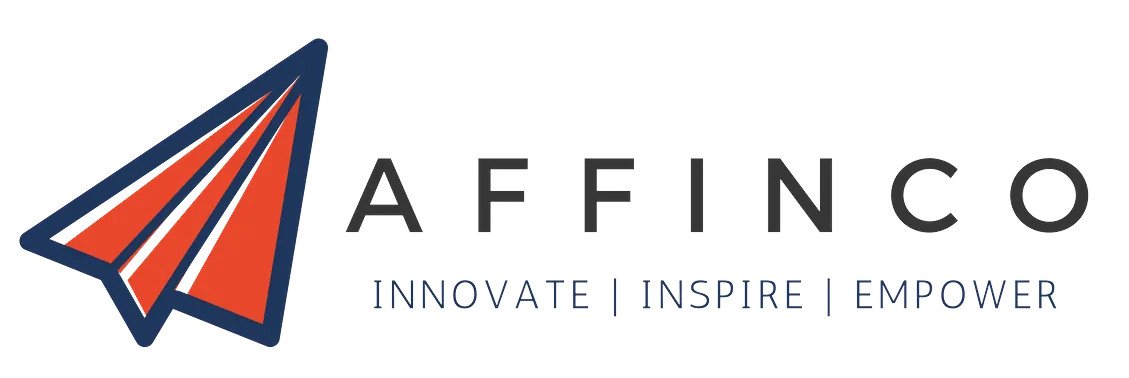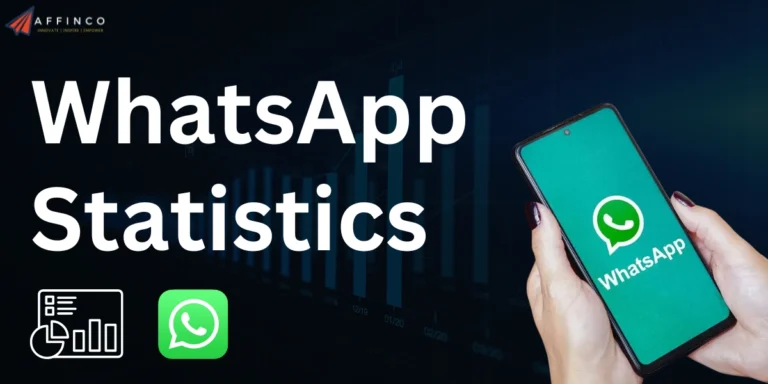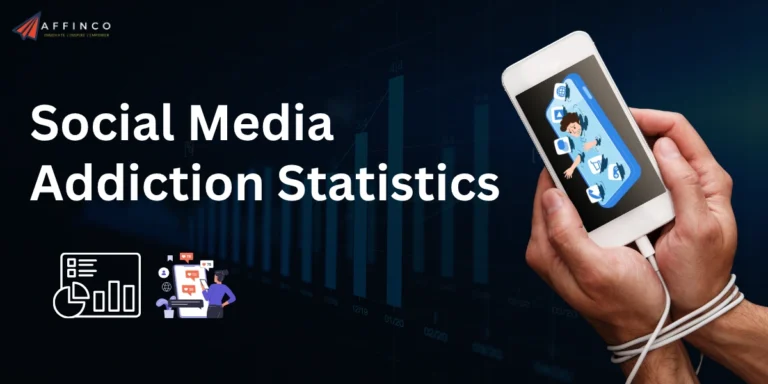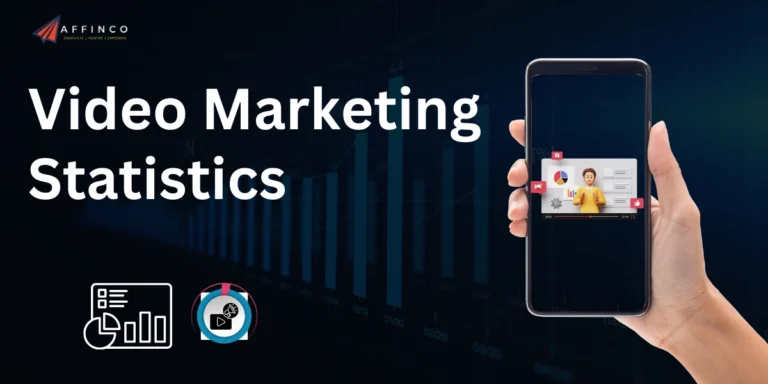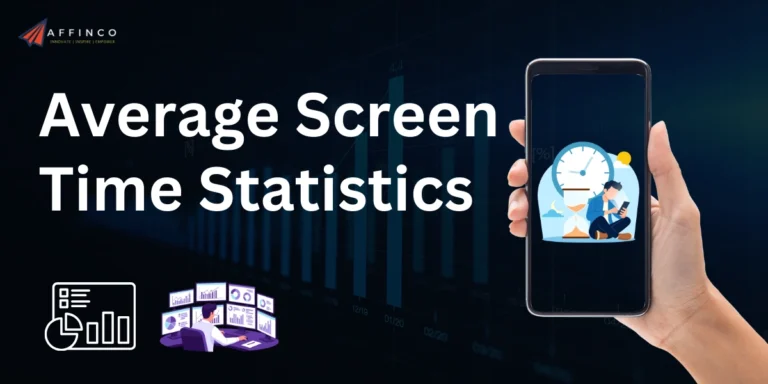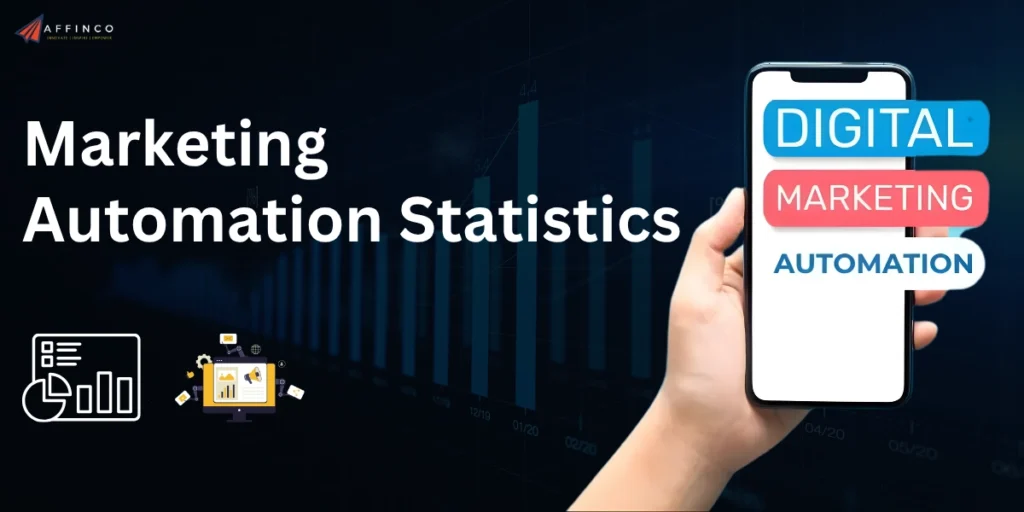
Marketing automation delivers $5.44 for every dollar spent, with 98% of B2B marketers calling it essential for success. The global market hits $7.39 billion in 2025 and keeps climbing toward $15.58 billion by 2030.
If you're hunting for hard data on automation platforms, lead generation, email marketing ROI, and conversion rates, you're in the right place.
We collected the latest Marketing Automation Statistics showing how AI-powered tools are changing campaign management and customer journey personalization.
Fun Fact: Automated emails get 84% higher open rates and 2,270% better conversion rates than regular promotional messages. Time to see what the data says about your next move.
Key Marketing Automation Statistics for 2025
Marketing Automation Market Size and Growth
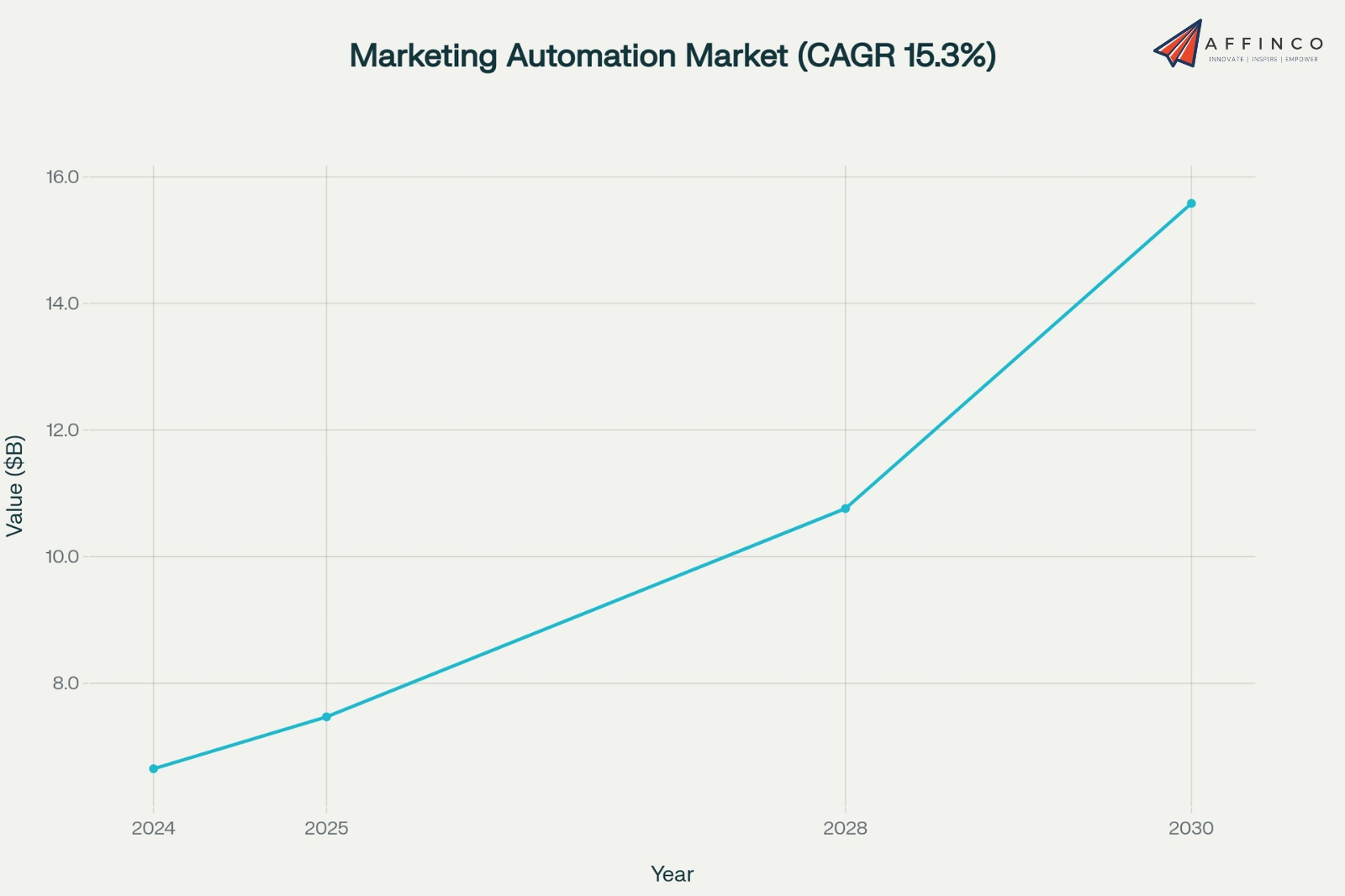
The marketing automation industry is on a significant upward trend, with market projections indicating sustained growth. Businesses are increasingly investing in these technologies to streamline their marketing efforts and gain a competitive advantage.
| Year | Projected Market Value (USD) |
|---|---|
| 2024 | $6.65 Billion |
| 2025 | $7.47 Billion |
| 2028 | $10.76 Billion |
| 2030 | $15.58 Billion |
This strong growth pattern highlights the increasing reliance on automation to manage complex marketing campaigns and improve overall performance. A focus on data-driven marketing continues to fuel this expansion.
General Adoption and Usage Statistics
Adoption of marketing automation is widespread, with a majority of companies now using at least one automation tool. This high rate of adoption shows the recognized value of automating repetitive tasks and creating more targeted marketing campaigns.
Over 480,000 websites were reported to be using marketing automation technology, a figure that continues to grow.
These figures show that while adoption is high, many businesses have yet to use the full potential of automation across the entire customer journey. The trend is toward deeper integration and more sophisticated use cases.
B2B Marketing Automation Statistics
In the business-to-business sector, marketing automation is considered fundamental for success. It helps B2B companies manage long sales cycles, nurture leads effectively, and align sales and marketing teams.
For B2B marketers, the focus is on creating a cohesive strategy that aligns technology with business goals to improve lead management and sales outcomes.
Financial Impact and ROI of Marketing Automation
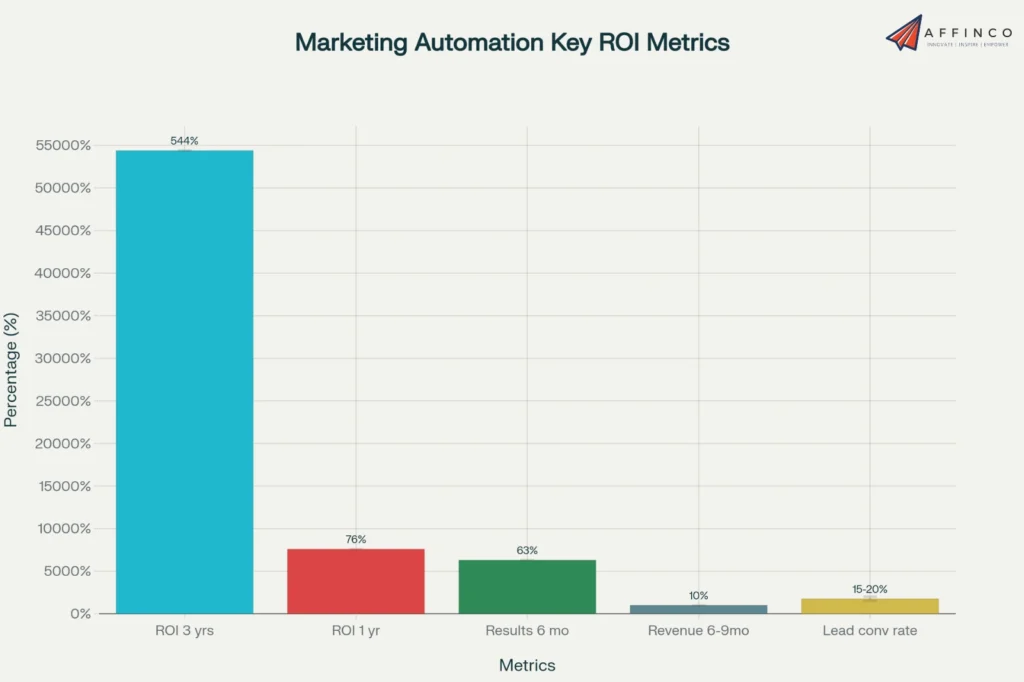
The return on investment for marketing automation is one of its most compelling benefits. Companies that implement these tools often see substantial increases in revenue, conversions, and overall marketing efficiency.
The strong financial returns confirm that marketing automation is not just a cost-saver but a significant revenue generator, making it a priority for marketing budget allocation.
The Role of AI in Marketing Automation
Artificial intelligence (AI) is rapidly changing the marketing automation field, adding a layer of intelligence that enables hyper-personalization and predictive analysis. The use of AI in marketing allows for more adaptive and effective campaigns.
The global AI in marketing market is valued at $47.32 billion in 2025 and is projected to exceed $107.5 billion by 2028.
As AI technology advances, its role in automation will only deepen, helping marketers to better understand customer behavior and deliver more relevant experiences, which is a core principle of AEO (AI Engine Optimization).
Email Marketing Automation Statistics
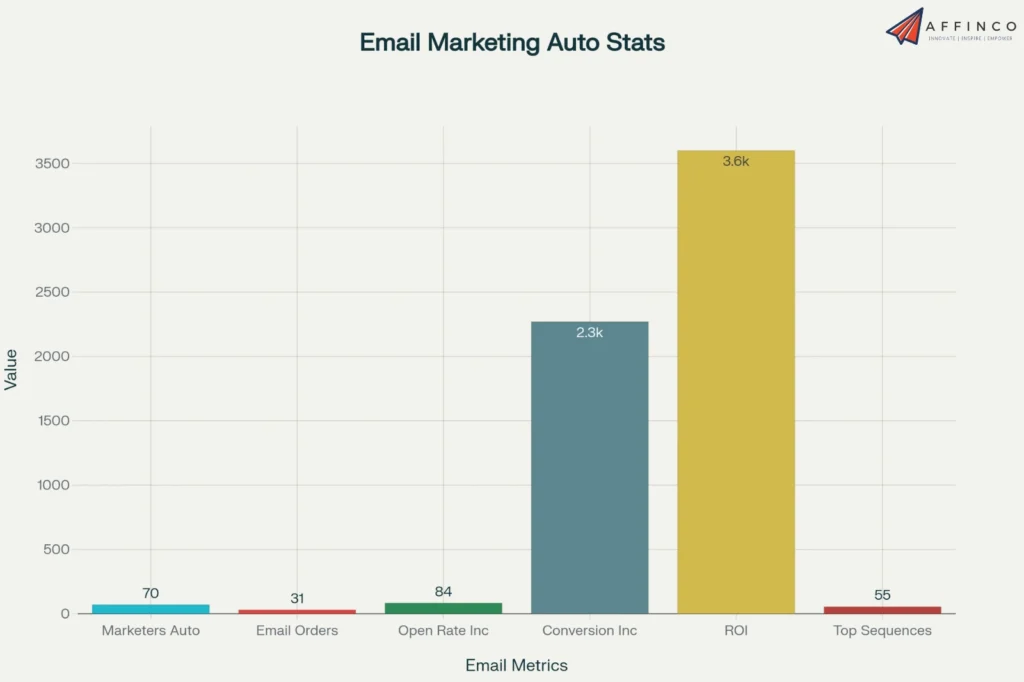
Email marketing remains the most commonly automated channel. Automation allows marketers to send timely, personalized messages at scale, from welcome series to abandoned cart reminders, driving engagement and sales.
These statistics show the immense value of automating email workflows. It allows for a level of personalization and timeliness that manual efforts cannot match, directly impacting the bottom line.
Social Media and Paid Ads Automation
Beyond email, automation is gaining traction in social media management and paid advertising. These tools help marketers schedule posts, manage campaigns, and optimize ad spend for better results.
- Social media management is the second most-automated channel, with 50% of marketers using automation tools.
- Paid advertising automation is used by 40% of marketers to manage and optimize their campaigns.
- For PPC campaigns, Google (98%), Facebook (76%), and Instagram (70%) are the most widely used advertising platforms, many of which are managed with automation.
- Programmatic advertising, which automates the buying of digital ads, is projected to account for spending of $724.84 billion by 2026.
Automation in these channels helps marketers maintain a consistent presence and react quickly to performance data, optimizing campaigns for maximum impact and efficiency.
Lead Management and Nurturing Statistics
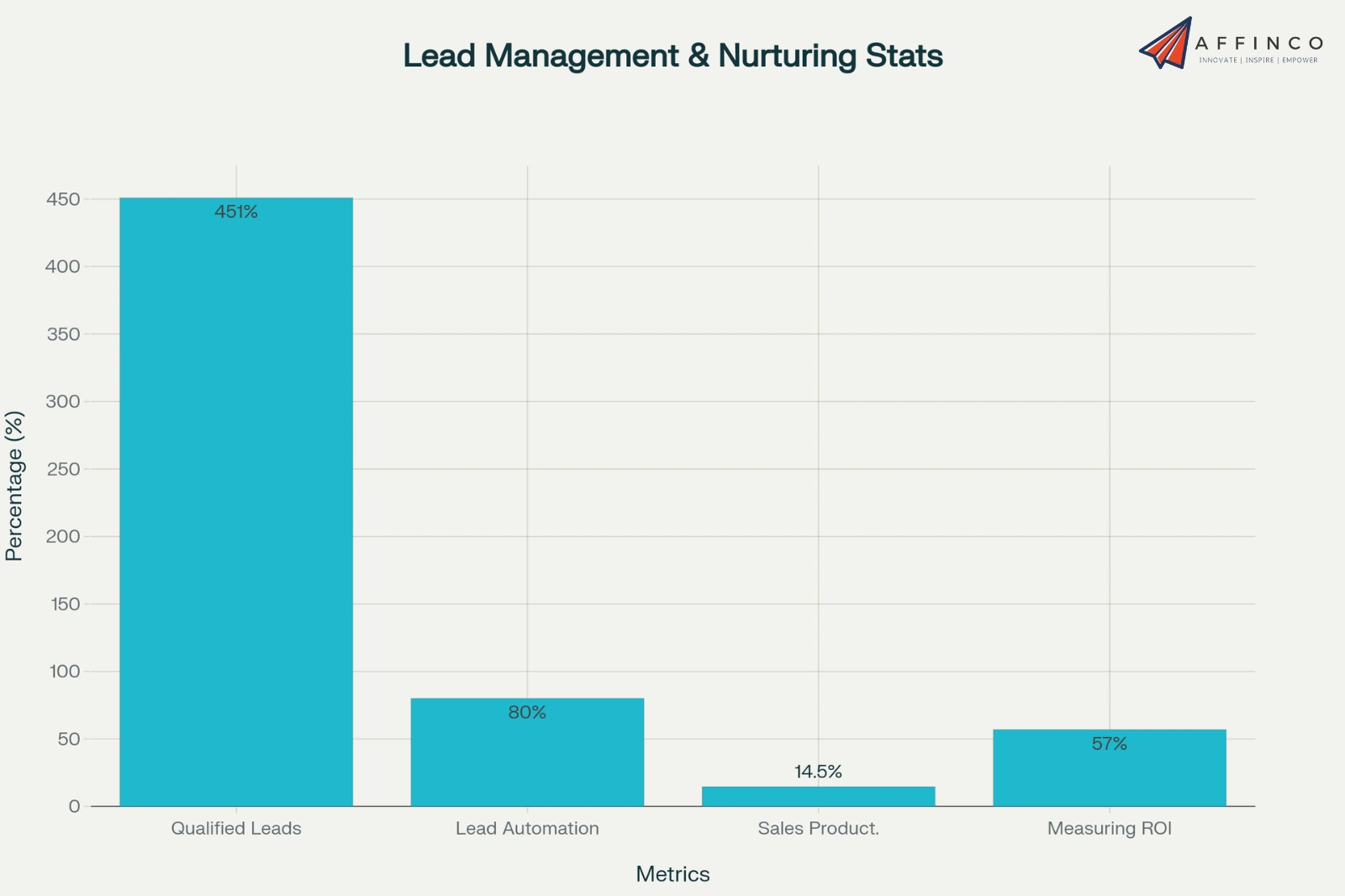
One of the core functions of marketing automation is to manage and nurture leads through the sales funnel. By using features like lead scoring and automated follow-ups, businesses can significantly increase the number of sales-ready leads.
Effective lead nurturing through automation ensures that potential customers receive relevant information at each stage of their buying journey, increasing the likelihood of conversion.
Customer Segmentation and Personalization
Marketing automation excels at dividing large audiences into smaller, more targeted groups. This customer segmentation allows for highly personalized messaging, which is a key driver of customer engagement and loyalty.
- Improved targeting is cited as a top benefit of marketing automation by 60% of marketing professionals.
- Message personalization and subscriber segmentation are ranked as the top two most effective email marketing strategies, both of which are enhanced by automation.
- 77% of marketers use AI-powered features within their automation tools to deliver personalized content experiences.
- Personalized email campaigns can drive 18 times more revenue than broadcast emails.
By delivering the right message to the right person at the right time, personalization through automation helps build stronger customer relationships and improves marketing outcomes.
Top Challenges in Marketing Automation
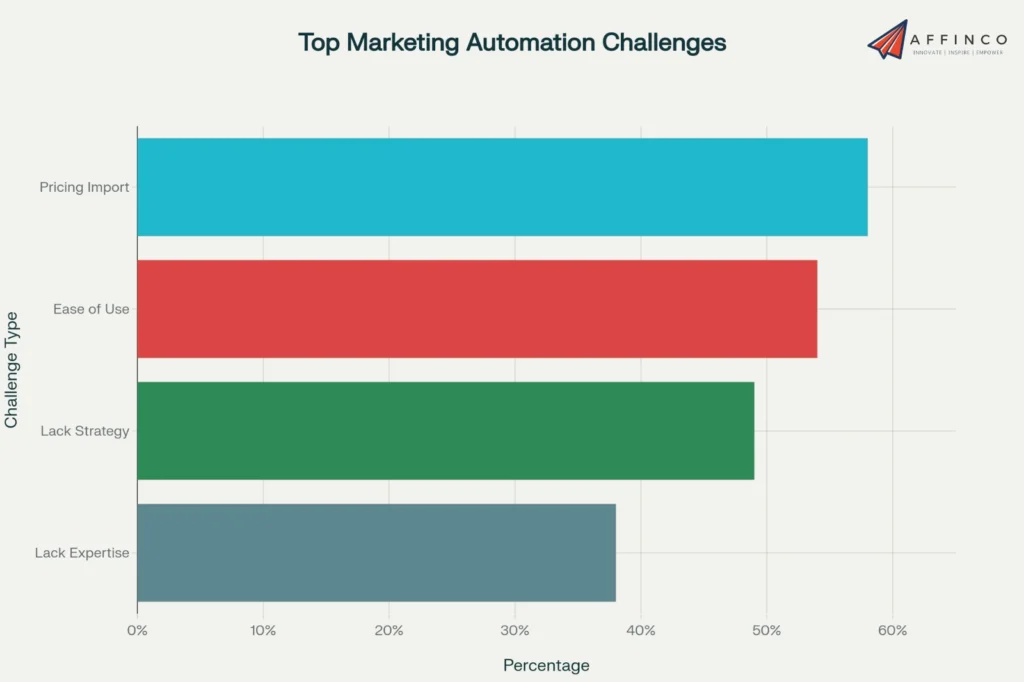
While the benefits are clear, implementing marketing automation is not without its difficulties. Businesses face challenges ranging from a lack of strategy to technical complexities.
Overcoming these challenges requires a clear plan, investment in training, and choosing the right platform that aligns with the company's technical capabilities and business needs.
Leading Platforms and Market Share
The marketing automation software market is competitive, but a few key players dominate. HubSpot leads the pack with a significant share of the market.
| Platform | Market Share (%) |
|---|---|
| HubSpot | 38.27% |
| Adobe Experience Cloud | 7.97% |
| Optimizely | 7.68% |
| Oracle Marketing Cloud | 7.37% |
| ActiveCampaign | 6.99% |
- As of early 2024, there were at least 430 companies offering marketing automation solutions.
- HubSpot's dominance is clear, but the presence of many other vendors indicates a healthy and diverse market catering to various business needs and budgets.
The wide range of available tools means businesses can select a solution that best fits their specific requirements, from all-in-one platforms to more specialized applications.
Future Trends in Marketing Automation for 2025 and Beyond
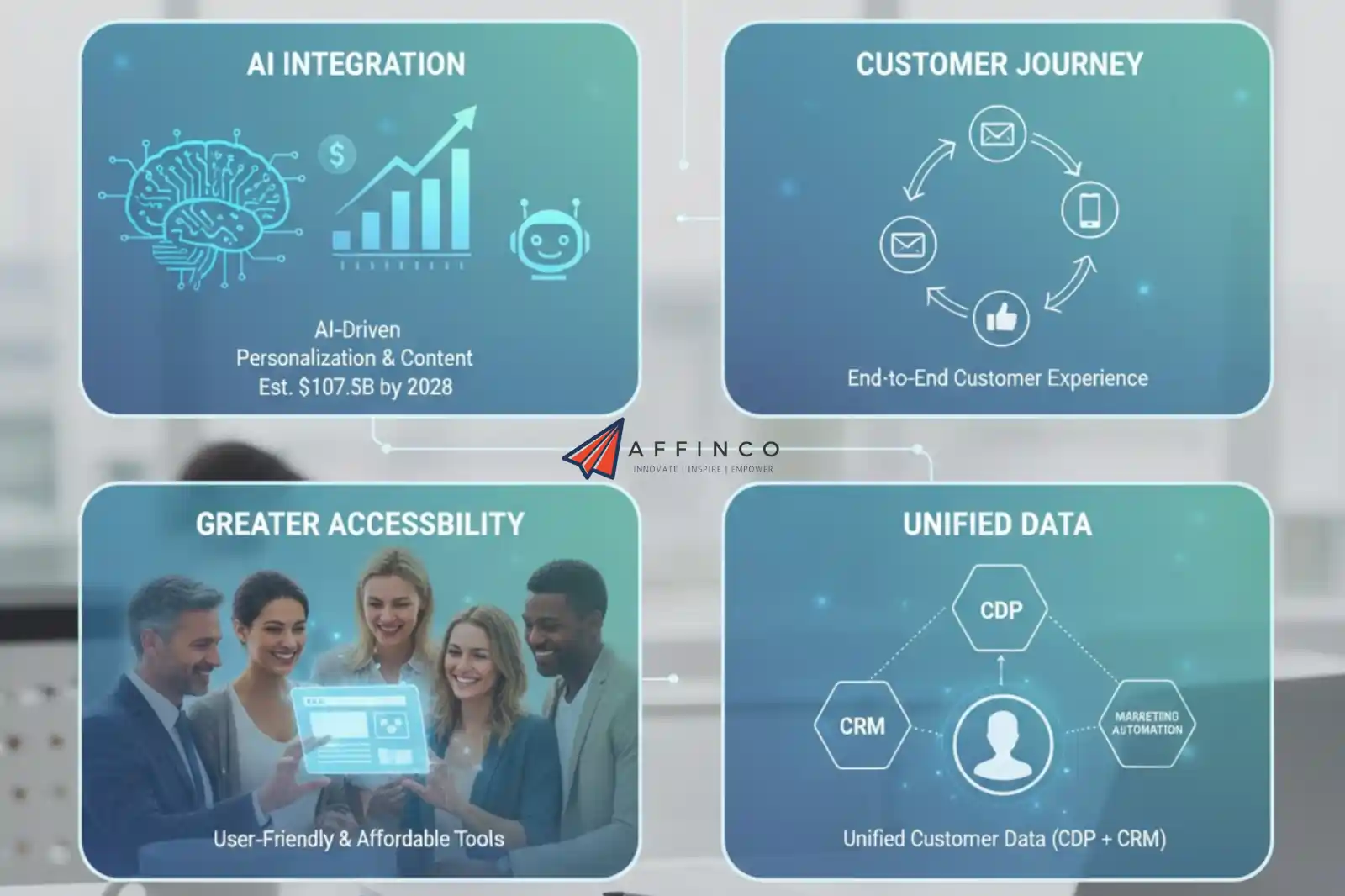
The marketing automation field is continually changing, with new trends and technologies shaping its future. AI, deeper integration, and a focus on the complete customer journey are at the forefront.
Staying aware of these trends will be critical for marketers who want to maintain a competitive advantage and continue to drive results with their automation efforts.
Final Take on Marketing Automation Statistics
Automation cranks out 451% more qualified leads and bumps sales productivity by 14.5%. Revenue climbs 10% within nine months of going automated.
Meanwhile, automated emails grab 31% of all orders despite making up less than 2% of total sends.
Competitors are already automating lead nurturing, customer journeys, and paid campaigns. Still running manual workflows in 2025?

Ali
Ali is a digital marketing expert with 7+ years of experience in SEO-optimized blogging. Skilled in reviewing SaaS tools, social media marketing, and email campaigns, we craft content that ranks well and engages audiences. Known for providing genuine information, Ali is a reliable source for businesses seeking to boost their online presence effectively.
